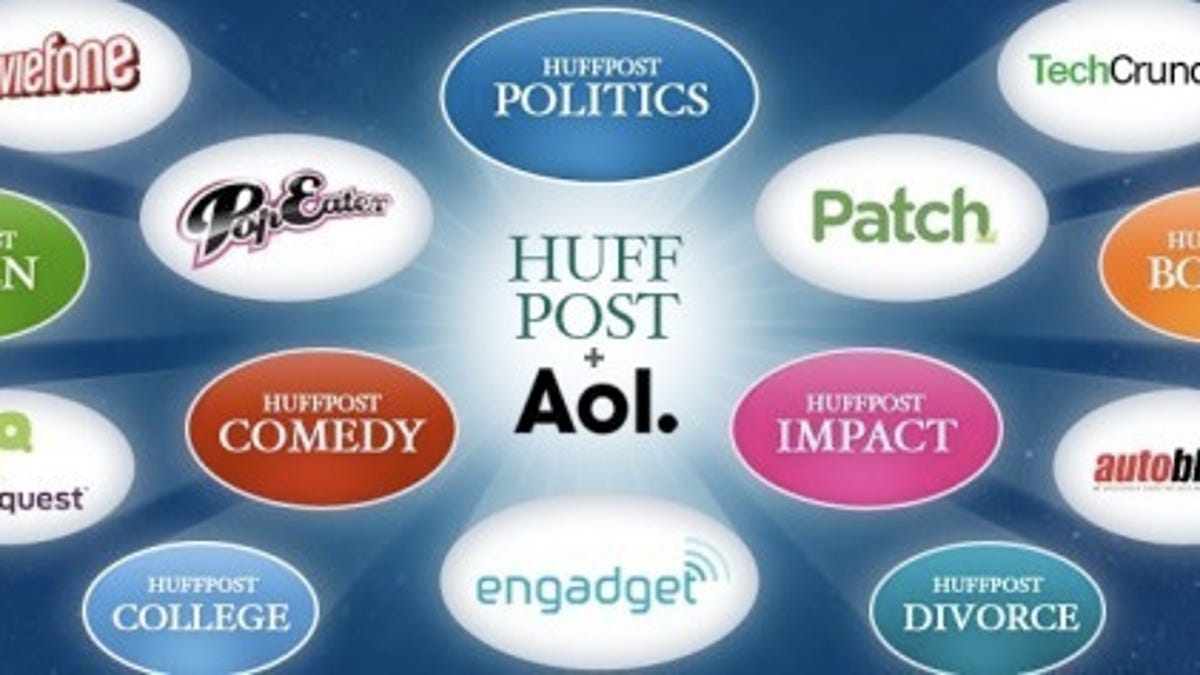Here we go again: AOL investor might start proxy war
Starboard Value, which owns 5 percent of AOL, is looking to replace some or all of the company's board members, according to a report.

If you ever run a declining Web company, be sure to keep one thing in mind: activist investors are waiting to pounce.
Just days after Yahoo activist shareholder Daniel Loeb proposed plans to take over four seats on that company's board, a new report from All Things Digital claims that a fund called Starboard Value is planning to launch its own proxy war with AOL.
According to All Things Digital's sources, Starboard Value, which owns about 5 percent of AOL, could propose an entirely new group of directors as early as today. And tomorrow is the last day for shareholders to nominate potential directors to the board.
Starboard's timing is impeccable. Whereas Loeb only hopes to secure four seats for his hand-picked directors, AOL's entire board is up for re-election this year, which would allow Starboard to nominate eight new members to the governing body.
Although Starboard had been running under the radar for a while, it emerged in December with a letter to AOL CEO Tim Armstrong, criticizing him for the company's troubles. At the time, though, it didn't give any indication that it would be launching a proxy battle to take control of the board.
"We strongly believe that AOL is deeply undervalued and that there are opportunities to substantially improve overall operating performance and valuation based on actions within the control of management and the Board," Starboard Managing Member Jeffrey C. Smith wrote to AOL at the time. "AOL's stock price has underperformed over almost any time period and we believe it is time for the Board to take immediate action to address the significant concerns highlighted in this letter."
It's not hard to see why shareholders might not be happy with AOL. In the last year, the company's shares have fallen nearly 13 percent to $18.25. Its acquisitions of TechCrunch and Huffington Post proved controversial, and left it with an embarrassing exodus of journalists, including TechCrunch founder Michael Arrington. From a financial perspective, shareholders have been disappointed by the company's declining revenue--down nearly $2 billion over the last four years--and its inability to secure sizable profits.
In a statement today regarding Starboard Value's letter to the AOL board, AOL said it has met several times with Starboard. It also pointed to improved earnings results as a sign of "significant progress" the company is making in its efforts "to improve AOL's growth trajectory and create meaningful shareholder value."
AOL has held several meetings with Starboard Value LP to address their questions. AOL communicated our continued intent to simplify AOL's business and our efforts to accelerate shareholder value creation. AOL has offered Starboard Value LP an opportunity to help shape the Company's Board of Directors composition and size. Unfortunately, Starboard Value LP has a singularly focused agenda and rejected this productive path to address their stated concerns and drive increased shareholder value.
Our Board of Directors and management team remain firmly committed to creating value for all shareholders. We have a valuable patent portfolio and several months ago, prior to Starboard's first letter, the AOL Board of Directors authorized the start of a process, and hired advisors, to realize the value of certain non-strategic patents. AOL has a clear plan to provide our consumers and customers with exceptional value, which we believe will lead to the creation of shareholder value. We will continue to aggressively execute and innovate on our strategy as we continue the turnaround of AOL.
The similarities between Yahoo and AOL are striking. Both companies were once prominent entities in the online world, but are now trying to adapt to the changing times. Both companies are also suffering through declining financial performances, and now, shareholders are trying to wrest control of their boards.
It's perhaps no surprise, then, that Reuters reported in October that Armstrong was floating the idea of merging his company with Yahoo. Reuters' sources said the move could net the combined companies $1.5 billion in savings.
Starboard did not immediately respond to CNET's request for comment on the All Things Digital report.
Update 12:25 p.m. PT: Added statement from AOL regarding Starboard Value's letter to the AOL board.

